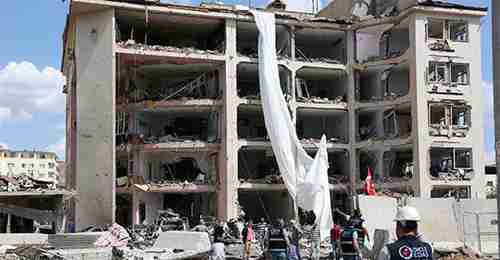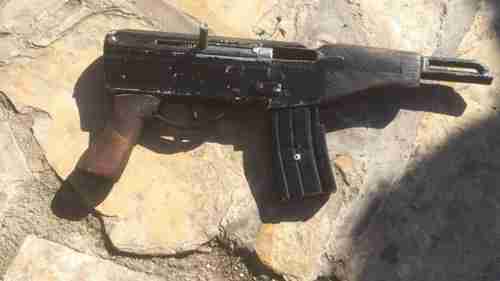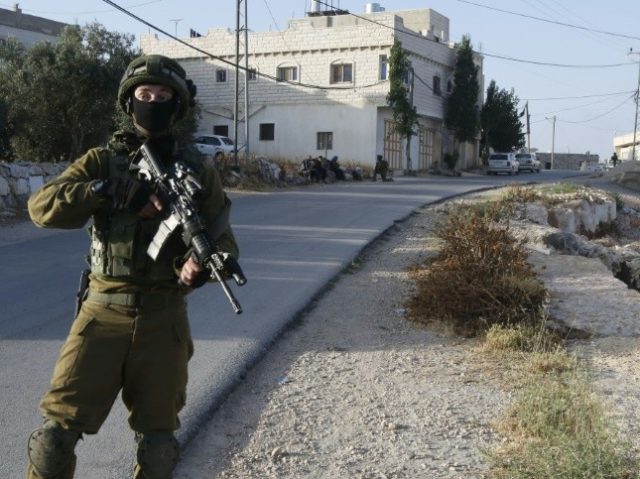This morning’s key headlines from GenerationalDynamics.com
- Turkey bans fertilizer sales after two terror bombings
- Israel deploys hundreds of troops to West Bank, cancels entry permits
- Israel cracks down on Palestinian workshops producing guns
Turkey bans fertilizer sales after two terror bombings

Police headquarters in Mardin after bombing on Wednesday (Reuters)
As we described yesterday, Turkey suffered two major terror attacks in two days, a bombing in Istanbul on Tuesday, and a bombing on police headquarters in the province of Mardin in southeast Turkey on Wednesday.
Both bombings targeted the police. The Kurdistan Workers’ Party (PKK) has taken credit for Wednesday’s bombing, but no one has taken credit for Tuesday’s bombing in Istanbul.
Both bombings were perpetrated by means of fertilizers containing ammonium nitrate. Turkey’s authorities have seized over 60,000 tons of fertilizer containing ammonium nitrate, and have temporarily suspended the sale of fertilizers containing ammonium nitrate after a series of bomb attacks across the country. Hurriyet (Ankara) and Deutsche Welle
Israel deploys hundreds of troops to West Bank, cancels entry permits
Israeli authorities have identified the perpetrators of the shooting rampage in Tel Aviv on Wednesday as two cousins, Khaled Mohammad Makhamrah, 22, and his cousin Mohamad Ahmad Makhamrah, 21, from the West Bank town of Yatta, near the city of Hebron. One was wounded during the gunfight, and both have been arrested.
Since the attackers were “lone wolves,” not part of Hamas or any other organized Palestinian group, Israel’s response options were limited to actions which take “collective punishment” on Palestinians in general.
It is thought that the attacks were timed for the start of the Islam’s holy month of Ramadan, and there are concerns that other terror attacks are planned for Ramadan. Israel’s military is deploying hundreds of additional troops to the West Bank, including soldiers from infantry and special forces units. Among other actions, the Israeli troops completed blocked roads leading in and out of Yatta.
Normally, Palestinians in the West Bank and Gaza are permitted to enter Israel during Ramadan to visit relatives, or to pray at the al-Aqsa mosque in Jerusalem. However, 83,000 permits have been canceled. Entering or leaving will only be permitted for humanitarian and medical cases.
The two cousins belong to the large Makhamreh clan. Israel’s government is suspending 204 work permits used by the Makhamreh clan to enter Israel.
Because Israel’s options are so limited, these “collective punishment” responses have been implemented, but they’re likely to further infuriate Palestinians who will not be able to visit their families or work during Ramadan. This will inevitably lead to more terror attacks and more collective punishment.
On the other hand, Israelis have been infuriated by the celebrations of many Palestinians in the streets of both the West Bank and the Gaza Strip, and on social media. Hamas published a statement terming the attack the first good tidings of Ramadan, while promising that more such tidings would come. YNet News (Israel) and AP and al-Jazeera
Israel cracks down on Palestinian workshops producing guns

Handmade ‘Carlo’ gun produced in the West Bank (AP)
In yesterday’s article, I quoted a news source as saying that the attackers “used improvised firearms: an imitation of the Swedish-made Carl Gustav recoilless rifle, which was used primarily in the 1950s and ’60s, and which is known on the Palestinian street as the Carlo.”
Several readers wrote to me to point out that that’s not possible. The Carl Gustav recoilless rifle is an 84mm antitank weapon, generally requiring two men to operate, shooting rocket-boosted warheads.
The actual weapon used by the attackers was a homemade clone of the 9mm Carl Gustav M/45 submachine gun, developed by Swedish state-owned Carl Gustav Arms company in 1945. It has a relatively simple design, requiring little more to build than two steel tubes welded together, along with other spare parts. In the West Bank, it’s known by its street name “Carlo,” with hundreds of the guns in circulation. They’ve been used several times by Palestinians attacking Israelis.
Israeli security forces are cracking down on metal workshops in the West Bank suspected of manufacturing the Carlo. The quality of the workmanship varies from gun to gun, depending on the materials and the manufacturer. But in the last few months it’s emerged as as the weapon of choice for Palestinian attackers, including the Tel Aviv attackers on Wednesday. AP and World Guns (Russia) and World Guns
KEYS: Generational Dynamics, Turkey, Mardin, Istanbul, Kurdistan Workers’ Party, PKK, Israel, Tel Aviv, West Bank, Hebron, Yatta, Ramadan, Khaled Mohammad Makhamrah, Mohamad Ahmad Makhamrah, al-Aqsa mosque, Jerusalem, Hamas, Carl Gustav, Carlo
Permanent web link to this article
Receive daily World View columns by e-mail

COMMENTS
Please let us know if you're having issues with commenting.